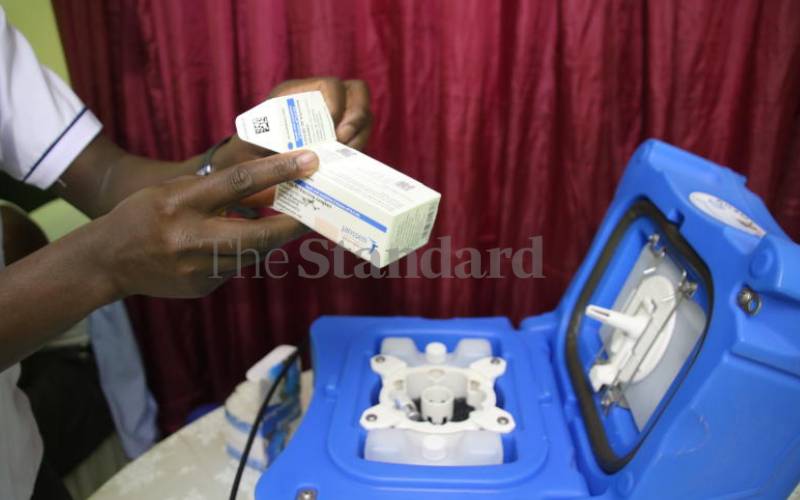×
The Standard e-Paper
Smart Minds Choose Us

Johnson and Johnson vaccines, KEPSA offices, Nairobi. September 2021. [David Gichuru, Standard]
The Ministry of Health yesterday launched a national vaccination awareness campaign by Inter-Religious Council in an effort to have at least 10 million people take the jab by year’s end.